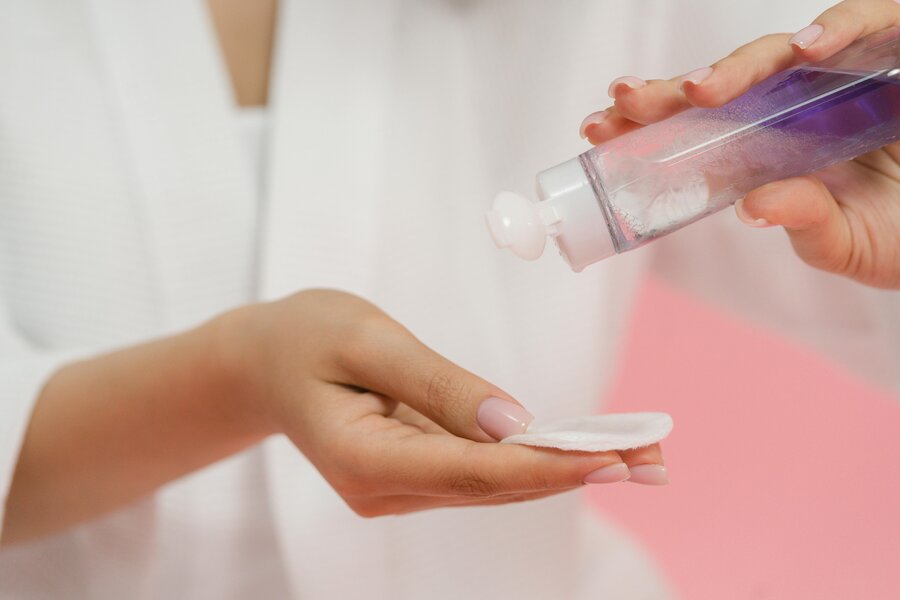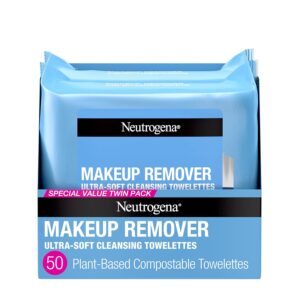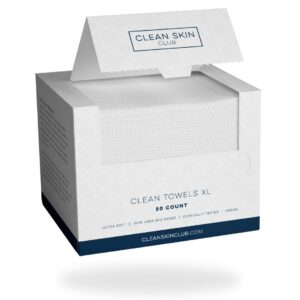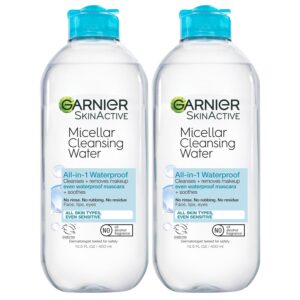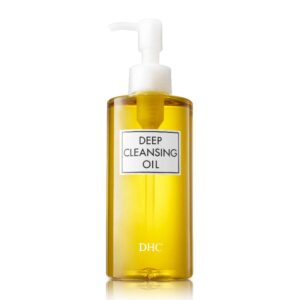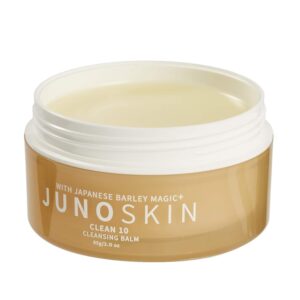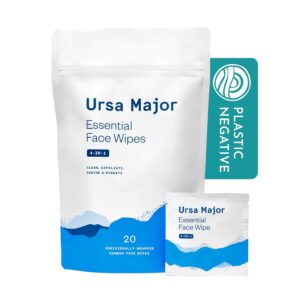Are Makeup Remover Wipes Bad for Skin? Understanding the Risks and Benefits for Healthier Choices
Makeup remover wipes have become a staple in the beauty routines of people who value convenience. These pre-moistened cloths, packed with cleansing agents, oils, or moisturizers, make it easy to remove makeup and dirt with a simple swipe. However, as quick and easy as these wipes may be, are they really as beneficial as they seem? In this comprehensive guide, we will explore the pros and cons of makeup remover wipes, their potential impacts on skin health, and how to make smarter choices for maintaining a glowing complexion.
What Are Makeup Remover Wipes?
Before we dive into the risks and benefits, let’s clarify what makeup remover wipes actually do. These disposable cloths are typically infused with various cleansing agents designed to break down makeup, oils, and impurities. They’re an appealing option for busy schedules, travel, and moments when a full cleansing routine isn’t possible. However, many wipes also contain ingredients like alcohol, preservatives, and fragrances that can be problematic for certain skin types.
Pros of Using Makeup Remover Wipes
Makeup remover wipes aren’t inherently bad. Here are a few reasons they’ve gained popularity:
Convenience on the Go
Makeup remover wipes are incredibly easy to carry, making them ideal for travel, the gym, or late nights when you’re too tired for a full skincare routine.Time-Saving Benefits
Removing makeup with wipes can take only a few seconds, making it a tempting option for those who value quick solutions. If you’ve ever come home exhausted, these wipes offer an easy way to avoid sleeping in makeup, which can lead to clogged pores and breakouts.Variety and Accessibility
With hundreds of options catering to different skin types and sensitivities, makeup remover wipes are accessible to nearly everyone. Hypoallergenic and fragrance-free options cater to sensitive skin, while other wipes are designed for acne-prone or oily skin.
Neutrogena Makeup Remover Wipes from Amazon
Cons of Using Makeup Remover Wipes
While they may offer convenience, makeup remover wipes do have drawbacks that can affect skin health over time. Here’s why they may not be the best choice for regular use:
Harsh Ingredients
Many wipes contain alcohol, synthetic fragrances, and preservatives, which can cause dryness, irritation, and even allergic reactions in sensitive skin. While these ingredients help to preserve the product and remove makeup, they can disrupt the skin’s natural barrier.Incomplete Cleansing
Makeup remover wipes may remove visible makeup but often leave behind residue. This layer of leftover product and oils can lead to clogged pores, breakouts, and dull skin over time. Without proper cleansing, makeup buildup can compromise skin health.Environmental Impact
Disposable wipes contribute significantly to landfill waste, as most aren’t biodegradable. They often contain plastic fibers that don’t break down easily. Over 20 million pounds of makeup wipes are disposed of every day in the U.S. alone, making this a crucial factor for eco-conscious consumers.
Are Makeup Remover Wipes Bad for Skin?
The question of whether makeup remover wipes are truly bad for the skin largely depends on individual skin type, frequency of use, and ingredients. Let’s take a deeper look at each factor to understand how they impact skin health.
1. Skin Type
- Sensitive Skin: Makeup remover wipes are often problematic for those with sensitive skin. The preservatives, fragrances, and other harsh chemicals in wipes can lead to irritation, redness, and even conditions like eczema.
- Oily and Acne-Prone Skin: For those with oily or acne-prone skin, wipes can leave behind residue that mixes with natural oils and potentially clogs pores. Regular use might lead to more frequent breakouts.
- Normal to Dry Skin: People with dry skin may experience increased dryness due to the alcohol content in many wipes. Over time, this can lead to flakiness and a compromised skin barrier.
2. Makeup Type
Not all makeup comes off easily with a wipe. Heavy or waterproof makeup, such as long-wear foundation and mascara, often requires additional cleansing methods. Relying solely on wipes for such products may leave a considerable amount of residue that accumulates over time, impacting the skin’s texture and radiance.
3. Frequency of Use
Occasional use of makeup wipes isn’t necessarily harmful. However, using them as your primary cleansing method, especially without following up with a proper cleanser, can lead to skin issues. Dermatologists recommend viewing makeup wipes as a quick-fix solution rather than a substitute for a thorough skincare routine.
Clean Skin Club Clean Towels from Amazon
Common Ingredients in Makeup Remover Wipes: What to Watch For
To make more informed choices, here’s a quick guide on what to look for on makeup remover wipe labels:
- Alcohol: Common in many wipes to help break down makeup, but it can be very drying and irritating.
- Fragrance: Synthetic fragrances are often harsh and can trigger allergic reactions, especially in sensitive skin.
- Parabens and Preservatives: These chemicals prolong the shelf life of wipes but can also disrupt the skin’s pH balance and lead to irritation.
- Surfactants: These ingredients help to dissolve oils and dirt but may strip the skin of its natural moisture if used too often.
How to Use Makeup Remover Wipes Safely
If you choose to use makeup remover wipes, here are some tips to minimize any potential damage to your skin:
Choose Quality Products
Look for wipes that are free of alcohol, synthetic fragrances, and harsh preservatives. Hypoallergenic options or brands that cater to sensitive skin generally have gentler formulations.Follow Up with a Cleanser
After using wipes, always follow up with a gentle cleanser to remove any leftover residue and to ensure your skin is fully clean. This “double cleansing” approach can help prevent clogged pores and irritation.Avoid Rubbing
Gently wipe your face instead of scrubbing. Aggressive rubbing can irritate your skin, causing redness and micro-tears, especially in the delicate under-eye area.
Best Practices for Makeup Removal
For healthier skin, here are a few tried-and-true methods to remove makeup effectively:
Micellar Water: This gentle solution is made up of micelles, tiny balls of cleansing oil molecules, which attract dirt, oil, and makeup without needing to rinse. Suitable for all skin types, micellar water can be especially effective for sensitive skin.
Garnier Micellar Water for Waterproof Makeup from Amazon
Cleansing Oils: Oil cleansers dissolve makeup and sebum while maintaining the skin’s moisture balance. They’re particularly beneficial for dry skin, as they nourish while cleansing.
DHC Deep Cleansing Oil, Facial Cleansing Oil from Amazon
Cleansing Balms: These solid cleansers are similar to cleansing oils but come in a balm form. They melt on the skin and dissolve makeup without leaving a greasy residue. Ideal for heavy makeup wearers or those with dry skin.
JUNO & Co. Clean 10 Cleansing Balm from Amazon
Double Cleansing Method: This method involves using an oil-based cleanser to remove makeup, followed by a water-based cleanser to remove any residue. It’s a favorite among skincare enthusiasts and professionals alike for a reason: it provides a deep clean without stripping the skin.
Ursa Major Essential Face Wipes from Amazon
Environmental Concerns: A Deeper Look
For those concerned about sustainability, makeup remover wipes can pose a dilemma. Most wipes are non-biodegradable and can contribute to significant waste. Here are some eco-friendly alternatives:
- Reusable Makeup Pads: These can be washed and reused multiple times, reducing waste while offering a gentle way to remove makeup.
- Washcloths: A gentle washcloth, used with your preferred cleanser, provides a reusable, waste-free way to cleanse skin effectively.
- Compostable Wipes: Some brands now offer biodegradable options that break down more easily, although they still require proper disposal methods to minimize impact.
Final Thoughts: Are Makeup Remover Wipes Right for You?
Ultimately, makeup remover wipes can be a part of your skincare routine, but they work best when used sparingly. For those who frequently wear heavy makeup or have sensitive or acne-prone skin, a more comprehensive cleansing routine will likely be more beneficial in the long run.
By considering factors like skin type, makeup habits, and lifestyle, you can make informed choices that prioritize your skin’s health. For occasional, on-the-go use, makeup remover wipes can certainly provide value. But for daily care, opt for a gentle cleanser or a double-cleansing routine to maintain a vibrant, healthy complexion.
In summary, makeup remover wipes aren’t necessarily “bad” for skin, but they aren’t without drawbacks. Used responsibly and occasionally, they’re a useful tool. However, making them the cornerstone of your skincare routine could lead to issues like irritation, breakouts, or even long-term skin damage. If you do rely on wipes, prioritize high-quality, gentle options and always follow up with a thorough cleanse to keep your skin in its best condition.

